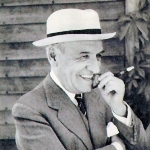Background
Edmund Husserl was born on April 8, 1859, Prostějov, a town in the Margraviate of Moravia (present Czech Republic). His parents were Jewish.


Augustusplatz 10, 04109 Leipzig, Germany
At Leipzig University, Husserl studied mathematics, physics, and philosophy, and he was particularly intrigued with astronomy and optics. Husserl's mentor was Thomas Masaryk, a former student of Brentano's, who was later to become the first president of Czechoslovakia.
Young Edmund Husserl
Augustusplatz 10, 04109 Leipzig, Germany
At Leipzig University, Husserl studied mathematics, physics, and philosophy, and he was particularly intrigued with astronomy and optics. Husserl's mentor was Thomas Masaryk, a former student of Brentano's, who was later to become the first president of Czechoslovakia.
Unter den Linden 6, 10117 Berlin, Germany
From 1878 to 1881, Husserl attended Humboldt University of Berlin.
Universitätsring 1, 1010 Wien, Austria
In 1883, Edmund Husserl received the doctorate with a dissertation on the theory of the calculus of variations at the University of Vienna.
Universitätsplatz 10, 06108 Halle, Germany
In 1886, Edmund Husserl went to Halle, where he studied psychology and wrote his Habilitationsschrift on the concept of number.
Husserl with his family.
Edmund Husserl
Edmund Husserl
Prostějov, Czech Republic
Plaque commemorating Husserl in his home town of Prostějov, Czech Republic.















https://www.amazon.com/-/es/Edmund-Husserl/dp/9024719143/ref=sr_1_2?__mk_es_US=%C3%85M%C3%85%C5%BD%C3%95%C3%91&dchild=1&keywords=Ideen+zu+einer+reinen+Ph%C3%A4nomenologie+und+ph%C3%A4nomenologischen+Philosophie.&qid=1593958862&sr=8-2
1913

https://www.amazon.com/-/es/Edmund-Husserl/dp/9024719755/ref=sr_1_1?__mk_es_US=%C3%85M%C3%85%C5%BD%C3%95%C3%91&dchild=1&keywords=.+Formale+und+transzendentale+Logik.+Versuch+einer+Kritik+der+logischen+Vernunft&qid=1593959025&sr=8-1
1929
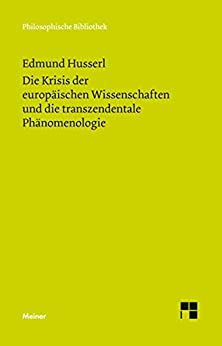
https://www.amazon.com/-/es/Edmund-Husserl-ebook/dp/B01AIFSOT0/ref=sr_1_1?__mk_es_US=%C3%85M%C3%85%C5%BD%C3%95%C3%91&dchild=1&keywords=Die+Krisis+der+europ%C3%A4ischen+Wissenschaften+und+die+transzendentale+Ph%C3%A4nomenologie%3A+Eine+Einleitung+in+die+ph%C3%A4nomenologische+Philosophie&qid=1593959136&sr=8-1
1936
Edmund Husserl was born on April 8, 1859, Prostějov, a town in the Margraviate of Moravia (present Czech Republic). His parents were Jewish.
Although there was a Jewish technical school in the town, Edmund’s father, a clothing merchant, had the means and the inclination to send the boy away to Vienna at the age of 10 to begin his German classical education in the Realgymnasium of the capital. A year later, in 1870, Edmund transferred to the Staatsgymnasium in Olmütz, closer to home. He was remembered there as a mediocre student who nevertheless loved mathematics and science, "of blond and pale complexion, but of good appetite." He graduated in 1876 and went to Leipzig for university studies.
At Leipzig, Husserl studied mathematics, physics, and philosophy, and he was particularly intrigued with astronomy and optics. Husserl's mentor was Thomas Masaryk, a former student of Brentano's, who was later to become the first president of Czechoslovakia. After two years he went to Berlin in 1878 for further studies in mathematics. He completed that work in Vienna, 1881-83, and received the doctorate with a dissertation on the theory of the calculus of variations. He was 24. Husserl briefly held an academic post in Berlin, then returned again to Vienna in 1884 and was able to attend Franz Brentano’s lectures in philosophy.
In 1886 he went to Halle, where he studied psychology and wrote his Habilitationsschrift on the concept of number.
In 1887 Edmund Husserl became a Privatdozent at Halle. The title of his inaugural lecture in Halle was "Über die Ziele und Aufgaben der Metaphysik" ("On the Goals and Problems of Metaphysics"). In the traditional sense, metaphysics is the study of Being. Though the text is lost, it is clear that Husserl already understood his method of the analysis of consciousness to be the way to a new universal philosophy and metaphysics, which he hoped would lay all previous schemes of metaphysics to rest.
The years of his teaching in Halle were later seen by Husserl to have been his most difficult. He often doubted his ability as a philosopher and believed he would have to give up his occupation. The problem of uniting a psychological analysis of consciousness with a philosophical grounding of formal mathematics and logic seemed insoluble. But from this crisis there emerged the insight that the philosophical grounding of logic and mathematics must commence with an analysis of the experience that lies before all formal thinking. It demanded an intensive study of the British Empiricists (such as John Locke, George Berkeley, David Hume, and John Stuart Mill) and a coming to terms with the logic and semantics stemming from this tradition - especially the logic of Mill - and with the attempts at a "psycho-logic" grounding of logic then being made in Germany.
He stayed at Halle until 1901 and wrote his important early books there. The Habilitationsschrift was reworked into the first part of Philosophie der Arithmetik, published in 1891. The two volumes of Logische Untersuchungen came out in 1900 and 1901.
In 1901 Husserl joined the faculty at Göttingen, where he taught for 16 years and where he worked out the definitive formulations of his phenomenology that are presented in Ideen zu einer reinen Phänomenologie und phänomenologischen Philosophie (Ideas Pertaining to a Pure Phenomenology and to a Phenomenological Philosophy). The first volume of Ideen appeared in the first volume of Husserl’s Jahrbuch für Philosophie und phänomenologische Forschung in 1913.
The phenomenological analysis of experienced reality - i.e., of reality as it immediately presents itself to consciousness - drew not only the German students who were unsatisfied with the Neo-Kantianism that then prevailed in Germany but also many young foreign philosophers who came from the traditions of Empiricism and Pragmatism. From about 1905, Husserl’s students formed themselves into a group with a common style of life and work. Standing in close personal contact with their teacher, they always spoke of him as the "master" and often accompanied him, philosophizing, on his walks. They understood Phenomenology as the way to the reform of the spiritual life.
Then the world war disrupted the circle of Husserl’s younger colleagues, and Wolfgang Husserl, his son, died at Verdun. Husserl observed a year of mourning and kept silence professionally during that time.
However, Husserl accepted an appointment in 1916 to a professorship at Freiburg im Breisgau, a position from which he would retire in 1928. At Freiburg Husserl continued to work on manuscripts that would be published after his death as volumes two and three of the Ideen, as well as on many other projects. He gave four lectures on Phenomenological Method and Phenomenological Philosophy at University College, London, in 1922. In 1923 he received a call to Berlin, which he rejected. His retirement from teaching in 1928 did not slow the pace of his phenomenological research.
In 1929 he accepted an invitation to give lectures in Paris. His lectures there were published as Cartesian Meditations in 1931. In the same year, Husserl gave a number of talks on "Phenomenology and Anthropology," in which he criticized his two "antipodes," Heidegger and Max Scheler (cf. Husserl 1997). In 1933 Hitler took over in Germany. Husserl received a call to Los Angeles but rejected it. Because of his Jewish ancestors, he became more and more humiliated and isolated. In 1935 he gave a series of invited lectures in Prague, resulting in his last major work, The Crisis of European Sciences and Transcendental Phenomenology.
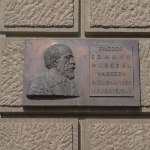
Edmund Husserl was the principal founder of phenomenology and one of the most influential philosophers of the 20th century. He has made important contributions to almost all areas of philosophy and anticipated central ideas of its neighbouring disciplines such as linguistics, sociology and cognitive psychology.
Born into a Jewish family, Husserl later converted to Protestantism, as did many other Jewish academicians in Germany and Austria at that time. This conversion was of a strictly formal nature.
As a philosopher with a mathematical background, Husserl was interested in developing a general theory of inferential systems, which (following Bolzano) he conceived of as a theory of science, on the ground that every science (including mathematics) can be looked upon as a system of propositions that are interconnected by a set of inferential relations. Husserl's Philosophie der Arithmetik (1891) attempts to realize Weierstrass's program of grounding mathematics in the cardinal numbers by describing those mental acts in which we are conscious of cardinal numbers. While Husserl was satisfied with his discussion of the intuitive presentation of the lower cardinals, he was dissatisfied with the psychologism in his analysis of the symbolic presentation of the higher cardinal numbers. Internal exigencies in Husserl's continued reflections on logic and mathematics - even by 1891 - eventually turned him away from psychologism. By 1893 and 1894, Husserl clearly distinguished the subjective presentation, that is, the psychological act presenting an object, from both the logical content of the presentation and the object presented in the presentation, a threefold distinction much indebted to Bernard Bolzano (1781–1848) and Kasimir Twardowski (1866–1938). Husserl in the following years completed his critique of psychologism, culminating in his lectures on logic at Halle, lectures that form the basis for the Prolegomena to the Logische Untersuchungen (1900–1901), which is considered by many the locus classicus of the critique of psychologism.
Husserl criticizes psychologism for its reduction of the ideality and transcendence of logical objects (e.g., meanings, concepts, judgments, number, and so forth) to the reality and immanence of psychological contents, and for its reduction of the ideality and universality of logical laws to the factuality and generality of empirical, psychological laws. While rejecting psychologism, Husserl does not, however, altogether reject the descriptive-psychological approach of the Philosophie der Arithmetik or its results, for his anti-psychologism is united with the recognition that insofar as logical laws govern the ideal, objective content of acts of thinking, the relation between these ideal contents and the acts in which they are thought must be elucidated.
Husserl's problematic in the main body of the Logische Untersuchungen, then, is to account for the relation between meaning and mind while preserving the objectivity and ideality of meaning. He typically poses this problem as a problem in epistemology, specifically, the problem concerning the relationship between the subjectivity of knowing and the objectivity of what is known. So, Husserl is committed to finding a new, nonpsychologistic epistemology to account for the relations among acts, ideal contents, and objects.
Husserl identifies phenomenological contents with psychological contents and distinguishes these from intentional contents. Ideal, intentional contents, in other words, are not properly included within the scope of phenomenological description, and Husserl must account for meaning by appealing solely to the phenomenological-psychological contents. This is suspiciously close to a psychologism that accounts for meaning by focusing on the act. In the discussion of expressive acts in the first investigation, Husserl avoids this conclusion by making the contents of the act that account for its intentional directedness the instantiation of an ideal essence, a meaning-species. The meaning itself remains objective and ideal, and the particular act's relation to this ideal meaning is one of instantiation such that the expressive act intends an object, whether or not that object exists, by means of conferring this meaning on a sensible sign.
Husserl incorporates the intentional contents into the phenomenological contents on which he reflects. He thereby turns to the investigation of the correlation between what he in Ideen calls the noesis, that is, the intending act, and the noema, that is, the object just as intended. Some interpreters of Husserl's theory of intentionality as expressed in Ideen understand the noema to be an abstract, ideal intensional entity ontologically distinct from the intended object. This abstract entity can in turn be understood on the model of the Logische Untersuchungen as a type that is tokened in different acts having the same determinate object, or it can be understood as an abstract particular by means of which an object is intended. On both interpretations, the noema serves as a mediator between the act and its intended object. Other interpreters, however, claim that Husserl's continuing reflections on intentionality, especially those acts that can serve as fulfilling acts in which the object is intuitively grasped, made him aware of the philosophical difficulties in saying that the act's intentional relation to an object is mediated by an abstract entity.
Husserl's goal was to develop a new philosophical science as the radical critique of the possibility of experience, a science that did not take the possibility of cognition for granted. However, because any science existing on the same plane as the natural and psychological sciences already presupposes both the possibility and the general validity of the experience of the world, this new science must exist on a different plane. This new plane - the plane of transcendental subjectivity - is disclosed by the methodological technique of the phenomenological reduction. Reminiscent of the universal Cartesian doubt, it is nevertheless different therefrom. Whereas the distinguishing characteristic of Cartesian doubt is that it annuls the positing of an object's existence or the validity of a judgment, the distinguishing characteristic of the phenomenological reduction is that it withholds participation in the positing of the existence of objects and the general validity of experience that characterizes one's natural experience - a positing Husserl characterizes as the general thesis of the natural attitude.
The revision of the theory of intentionality and the development of the methodological principle of the phenomenological reduction are two of the three major developments in Husserl's thought during the Göttingen years. The third is the development of his views on the nature of the consciousness of inner time, a development that leads to the disclosure of absolute consciousness. A phenomenological description of the awareness of experience as temporally extended - that is, as beginning in the past, enduring in the present, and aimed at the future - requires that Husserl distinguish two strata in consciousness: (1) the nontemporal, time-constituting absolute consciousness that makes possible the awareness of inner time by virtue of compound intentionality directed at once to the now, the just elapsed, and the yet to come; and (2) the flow of temporally ordered experiences themselves. This distinction accounts at once for the temporality of lived experience, for the momentary, pre-reflective awareness of that experience as a temporal unity, and for the pre-reflective self-awareness of one's own temporally ordered and unified stream of experiences.
Formale und transzendentale Logik, in which Husserl returns to the issue of the grounding of logical and mathematical sciences, brings his career full circle. The nature of logic cannot be fully clarified without the phenomenological reduction, for the reduction enables us to see more clearly how sense - in a manner relevant for logic - arises in our experience. Acts of judging are directed to categorially formed, complex states of affairs. The logical or apophantic domain first emerges in a critical turn occasioned by a concern with the truth or falsity of judgments. The positing involved in the straightforward encounter of objects and states of affairs is neutralized. However, this positing is not denied or negated; nor does the original state of affairs disappear from view to be replaced by a new entity - the proposition - that was always there but an unnoticed mediator in our intentional relation to the state of affairs. Instead, attention is turned to the objective sense of the state of affairs as intended in the judging, and this objective sense is considered simply as a supposition in order to seek confirmation or disconfirmation of the state of affairs as supposed.
Formale und transzendentale Logik also explores the relation between the Aristotelian and Leibnizian traditions in logic. Husserl contrasts formal apophantics derived from Aristotle with formal ontology derived from Leibniz's notion of mathesis universalis, but he also views them as inseparably united. The ground of their unity is the intentional relation between acts and their objects. Formal ontology results from the articulation of the formal structures, relations, and combinations of objects. Formal logic arises from the articulation of these same formal structures, relations, and combinations considered as meanings, as objective states of affairs merely as supposed. The meaning-forms are teleologically ordered toward fulfillment in our intuitive apprehension of object-forms. If the meanings are confirmed in fulfilling experiences, then the identity obtaining between meaning-forms and object-forms is disclosed. The identity-in-correlation of the logical and the ontological, therefore, is properly and fully a mathesis universalis realized only at what Husserl calls the third level of logic, the logic of truth.
Quotations:
"I had to philosophize. Otherwise, I could not live in this world."
"To begin with, we put the proposition: pure phenomenology is the science of pure consciousness."
"Merely fact-minded sciences make merely fact-minded people."
"Philosophy as science, as serious, rigorous, indeed apodictically rigorous science - the dream is over."
Husserl himself had developed an individual style of working: all of his thoughts were conceived in writing - the minutes, so to speak, of the movement of his thought. During his life, he produced more than 40,000 pages written in Gabelberger stenographic script.
Quotes from others about the person
"Husserl has shown that man's prejudices go a great deal deeper than his intellect or his emotions. Consciousness itself is 'prejudiced' - that is to say, intentional." - Colin Wilson
"No one in our century has raised the call for philosophy as a rigorous science with such clarity, purity, vigor, and breadth as Husserl." - Leo Strauss
In 1887, Edmund Husserl married Malvine Steinschneider, the daughter of a secondary-school professor from Prossnitz. As his energetic and skilled wife, she was his indispensable support, until his death, in all the things of their daily life. The couple had three children.
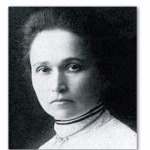
Gerhart Adolf Husserl was a philosopher and a Professor of Law at the universities of Kiel and Washington.
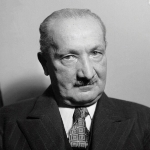
Philosopher Martin Heidegger is the best known of Husserl's students. During 1920–1923, Heidegger was Husserl's assistant.
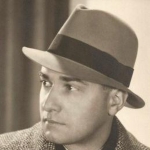
Eugen Fink and Edmund Husserl collaborated during the 1920s and 1930s.
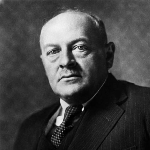
Max Scheler found in Husserl's phenomenology a new source of inspiration for his own philosophy.
